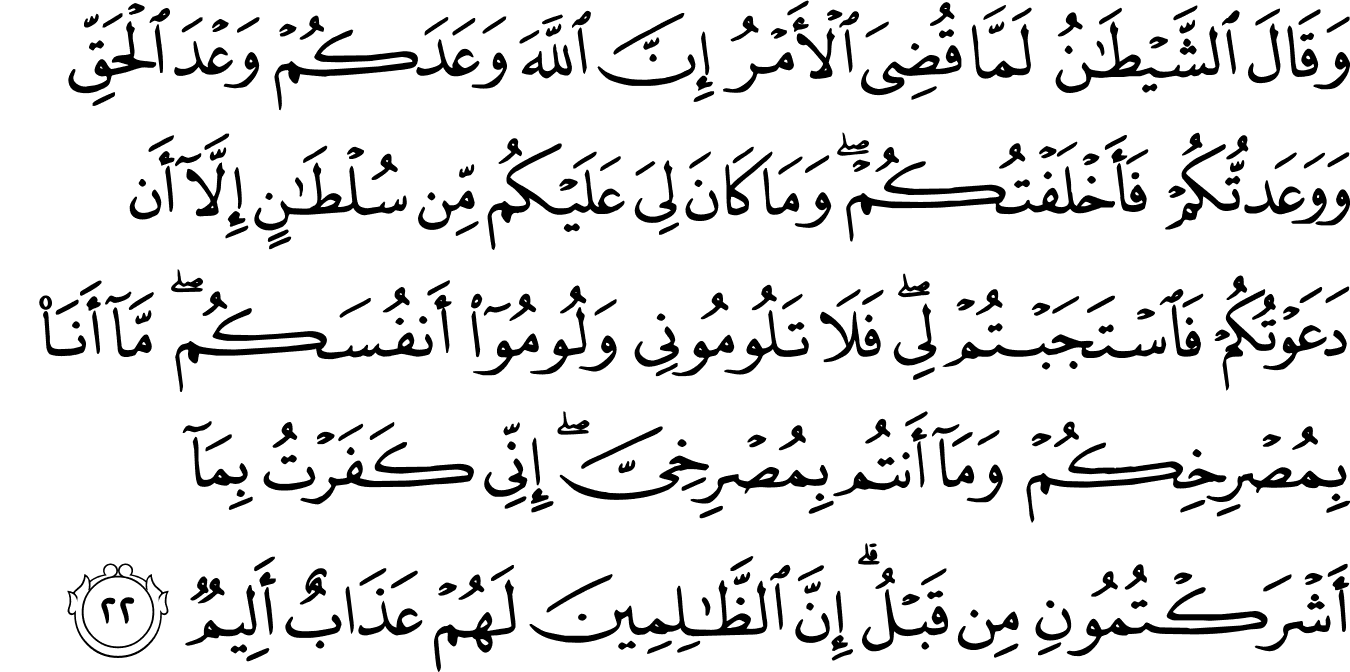#Islam
Self-Evaluation In Light Of Faith: Overcoming Obstacles To Accountability And Planning
Published

Every year, as we approach the end or the beginning of a new year, individuals reflect on the past and set resolutions for the future. In this article, I will explain the concepts of accountability from an Islamic perspective.
In the corporate world, companies conduct employee performance evaluations, providing feedback on the previous year’s performance and setting goals for improvement in the next. Employees have the opportunity to rectify mistakes and enhance their performance.
As Muslims and people of faith, our performance and goals should be connected to our belief in Allah 

Keep supporting MuslimMatters for the sake of Allah
Alhamdulillah, we're at over 850 supporters. Help us get to 900 supporters this month. All it takes is a small gift from a reader like you to keep us going, for just $2 / month.
The Prophet (SAW) has taught us the best of deeds are those that done consistently, even if they are small. Click here to support MuslimMatters with a monthly donation of $2 per month. Set it and collect blessings from Allah (swt) for the khayr you're supporting without thinking about it.
First, our resurrection after death is inevitable. Allah 

On that Day, we will be presented with our individual books of records, and we will be held accountable based on our actions. As Allah 
“Read your book of records. You are a sufficient auditor for yourself this Day.” [Surah Al-Isra: 17; 14]
Second, there is no second chance to come back to this world to make up for mistakes. At that time, there is no next year, no chance of going back and saying, “Please give me another chance.” Allah 
“[For such is the state of the disbelievers], until, when death comes to one of them, he says, “My Lord, send me back,”
“That I might do righteousness in that which I left behind.” No! It is only a word he is saying; and behind them is a barrier until the Day they are resurrected.” [Surah al-Muminun: 23; 99-100]

Self-accountability

PC: Iulia Mihailov (unsplash)
That’s why it is essential for us to engage in profound self-evaluation from the lens of our faith. Self-evaluation and accountability remind us to focus on our goals and use our time meaningfully.
Following the principle of self-accountability, Omar ibn Alkhattaab 

“Hold yourself accountable before you are held accountable and weigh your deeds before they are weighed for you.” [Muḥāsabat al-Nafs 2]
The point here, since there will be no other chance, then it behooves us to hold ourselves accountable before it is too late. In companies, they do an ‘internal audit’ before they get surprised by an external audit. It is crucial for us to engage in profound self-evaluation in this world before facing the hereafter audit. Look back to your life and say if I die tomorrow, am I ready to meet Allah 
We need to always remember that day. Allah 
“And the record [of deeds] will be placed [open], and you will see the criminals fearful of that within it, and they will say, ‘Oh, woe to us! What is this book that leaves nothing small or great except that it has enumerated it?’ And they will find what they did present [before them]. And your Lord does injustice to no one.” [Surah Al-Kahf: 18;49]
What Prevents Us from Holding Ourselves Accountable?
In contemporary society, there is an inclination to avoid accountability. This is reflected in three prevalent mentalities: the Ego & Pride mentality, the Right & Entitlement mentality, and the Victim mentality. It is very hard for people with these kinds of mentality to say “Oh our Lord, we wronged ourselves. Please forgive us.” Let’s examine those three mentalities.
- The Ego & Pride mentality:
The Ego & Pride mentality is marked by individuals who never admit to being wrong, and avoid taking responsibility for their actions. They place themselves above others, resist repentance (tawba), and refuse to turn back to Allah 

“And he and his hosts were arrogant in the land, without right, and they thought that they would never return to Us.” [Surah Al-Qasas: 28;39]
Similar to them are the people of ‘Aad:
“As for ‘Aad, they were arrogant upon the earth without right and said, “Who is greater than us in strength?” Did they not consider that Allah who created them is greater than them in strength? But they were rejecting Our signs.” [Surah Fussilat: 41;15]
People with ego and pride find it challenging to acknowledge their mistakes and be accountable. Islam emphasizes humility to enable self-reflection, acknowledgment of errors, and sincere repentance. The contrast between humility and the Ego & Pride mentality underscores the importance of adopting a humble approach in Islam.
- The Right & Entitlement mentality:

PC: Orkun Azap (unsplash)
The mentality of Right & Entitlement places a strong emphasis on personal rights, often without giving due consideration to corresponding responsibilities. This mindset tends to foster a sense of entitlement, concentrating on individual rights while neglecting the importance of balancing them with responsibilities. In this article, I’m giving more focus on this mentality since it is something that is prevailing.
Individuals subscribing to this mentality often articulate phrases such as “I deserve it,” embodying what is commonly referred to as the “you owe me” attitude. These individuals tend to believe they are entitled to preferential treatment, placing a strong emphasis on their rights without giving due consideration to their corresponding responsibilities.
An illustrative example of this focus on rights without due regard for responsibilities can be seen in inquiries addressed to Imams like: “What are my rights as a husband?” or “What are my rights as a wife?” It reflects a perspective that centers predominantly on personal entitlements, often overlooking the reciprocal responsibilities inherent in relationships.
Life, however, is a delicate balance between rights and responsibilities, not a unilateral emphasis on rights alone. Consider the Children-Parents relationship as an instance. In educational settings, discussions around the relationship between children and their parents predominantly revolve around the rights of the child, overshadowing the crucial aspect of their responsibilities towards their parents. This skewed perspective, where the emphasis is solely on knowing one’s rights, can lead to fragmented family dynamics. It’s essential to recognize that a harmonious existence necessitates a holistic understanding of both rights and responsibilities, fostering a more balanced and mutually beneficial societal framework.
The Prophetic Approach
In our religion, there is this mix and balance between rights and responsibilities with much focus on responsibilities than rights. The Prophet 
For instance, when addressing wealthy Muslims, the Prophet 

On the contrary, when addressing the poor Muslims, the Prophet’s 

“If one of you were to carry a bundle of firewood on his back, that would be better for him than begging a person who may or may not give him anything.”2https://sunnah.com/nasai:2584
This exemplified the dignity in self-earned sustenance over dependency on others.
When addressing employers and business owners, the Prophet 
“Give the worker his wages before his sweat dries.”3https://sunnah.com/ibnmajah:2443“
This served as a reminder of the rights of laborers, emphasizing fair and timely compensation for their efforts.
In addressing workers, the focus shifted to the responsibility of performing tasks with excellence. The Prophet 

In a contemporary context, where discussions often center around individual rights, the Prophet’s 

The Prophet 

“Every one of you is a guardian and is responsible for what is under him. The leader of people is a guardian and is responsible for his people. A man is the guardian of his family, and he is responsible for them. A woman is the guardian of her husband’s home and she is responsible for them. The servant is a guardian of the property of his master, and he is responsible for it. Every one of you is a guardian and is responsible for his subjects.”4https://sunnah.com/muslim:1829a
This universal guidance underscores the collective responsibility of individuals in various roles, fostering a sense of duty and accountability within the community.
- The Victim Mentality
A prevalent mindset that hinders individuals from taking responsibility is what I call the ‘Victim Mentality.’ This mentality involves shifting blame away from oneself and attributing all problems to external factors. Individuals with this mindset often engage in conspiracy theories and make excuses for their actions, fostering a belief that they are victims.
People with a victim mentality tend to evade accountability by blaming others for their shortcomings. For example, in the case of academic underachievement, they blame it on the teacher. In case of sinning, they attribute it to the influence of Satan (Shaitan.) This mindset perpetuates a sense of entitlement, where individuals believe they are exempt from responsibility. “None of my problems are my fault. I am a victim.”
In the context of the hereafter, there are instances of individuals attempting to shift blame to Shaitan. However, Allah 
“And Satan will say when the matter has been concluded, “Indeed, Allah had promised you the promise of truth. And I promised you, but I betrayed you. But I had no authority over you except that I invited you, and you responded to me. So do not blame me; but blame yourselves. I cannot be called to your aid, nor can you be called to my aid. Indeed, I deny your association of me [with Allah ] before. Indeed, for the wrongdoers is a painful punishment.” [Surah Ibrahim:14;22]
Furthermore, some individuals shift blame onto leaders and elders, claiming they merely followed the guidance provided to them. The Quran presents a scenario, where those who were followed will disown their followers on the Day of Judgment.


This serves as a stark reminder that blindly following others without personal accountability is not a valid excuse.
Overall Islamic Perspective
Contrary to the above mentalities, Islam encourages humbleness, self-awareness, and accountability. The Quran emphasizes that individuals have insight into their own actions and will serve as witnesses against themselves, even if they present excuses.

This underscores the innate knowledge every person possesses about their choices and actions.
The teachings of Prophet Muhammad 
“The smart one is he who accounts for himself and works for what comes after death, while the incapable one follows his desires and merely hopes for Allah’s forgiveness.”
The hadith highlights the wisdom in accounting for oneself and striving for a meaningful existence beyond this life. In contrast, those who follow their desires and rely solely on Allah’s 
Let us conduct a sincere internal audit, recognizing our faults, seeking forgiveness, and acting responsibly. Reflecting on self-accountability, as emphasized in the Quran, will guide our efforts toward self-improvement.
May Allah 
Related:
Keep supporting MuslimMatters for the sake of Allah
Alhamdulillah, we're at over 850 supporters. Help us get to 900 supporters this month. All it takes is a small gift from a reader like you to keep us going, for just $2 / month.
The Prophet (SAW) has taught us the best of deeds are those that done consistently, even if they are small. Click here to support MuslimMatters with a monthly donation of $2 per month. Set it and collect blessings from Allah (swt) for the khayr you're supporting without thinking about it.
Brother Abdurahman Idris holds a Bachelor's degree in Islamic Economics and dual Master's degrees in Economics and Higher Education Administration. Currently serving as the Chairman of the Quba Center in Sterling, Virginia, he is deeply rooted in a rich educational lineage, having received guidance from his father, the esteemed Sudanese scholar, Sh. Jaafar Idris. This mentorship underscores Abdurahman's unwavering commitment to preserving and advancing scholarly traditions. Immigrating to the United States in the early '90s, Abdurahman has actively contributed to the Muslim community. He passionately delivers impactful Khutba and lectures, fostering religious awareness. His research interests span Islamic History, Tafsir, and the comparison of Islamic Concepts with contemporary ideologies, reflecting his dedication to exploring the intersections between faith and the modern world.

You may like

30 Nights with the Qur’an: A Ramadan Series for Muslim Teens

Keep Zakat Sacred: A Right Of The Poor, Not A Political Tool

Far Away [Part 9] – Crane Dances In The River

From The MuslimMatters Bookshelf: Ramadan Reads For 1447 AH

Courting The Crosswinds: The Tragedy Of Saif Al-Islam Qaddafi

[Podcast] Should Muslims Ally with Conservatives or Progressives? | Imam Dawud Walid

How to Make this Ramadan Epic | Shaykh Muhammad Alshareef

[Podcast] The Parts of Being an Imam They Don’t Warn You About | Sh Mohammad Elshinawy

[Podcast] Guardians of the Tradition: Muslim Women & Islamic Education | Anse Tamara Gray

Iron Principle Under Pressure: A Profile Of Naledi Pandor

[Podcast] Guardians of the Tradition: Muslim Women & Islamic Education | Anse Tamara Gray

How to Make this Ramadan Epic | Shaykh Muhammad Alshareef

[Dhul Hijjah Series] Calling Upon the Divine: The Art of Du’a (Part 1)

IOK Ramadan 2025: Four Steps | Sh Zaid Khan

IOK Ramadan 2025: Do Your Best | Sh Zaid Khan
Trending
-
#Current Affairs4 weeks ago
[Podcast] Should Muslims Ally with Conservatives or Progressives? | Imam Dawud Walid
-
#Current Affairs1 month ago
Op-Ed: From Pakistan To Gaza – Why Senator Mushtaq Ahmad Khan Terrifies Power And Zionism
-
#Culture1 month ago
The Muslim Book Awards 2025 Winners
-
#Islam3 weeks ago
How to Make this Ramadan Epic | Shaykh Muhammad Alshareef















